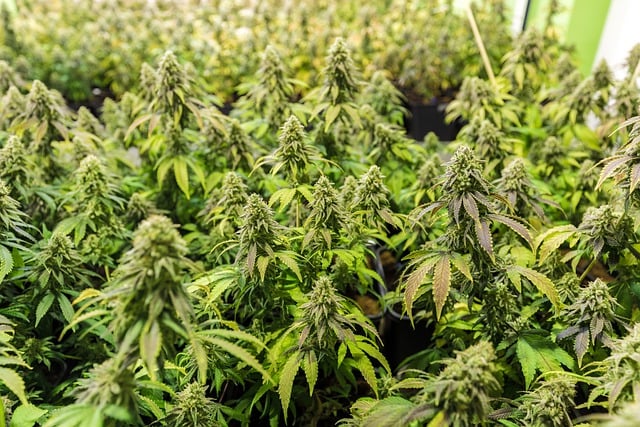THCa Flower: A Powerful Natural Remedy for Inflammation and Recovery
In recent years, the interest in natural remedies for health and wellness has surged. Among these, Choosing the right THCa flower strain has emerged as a promising option for those seeking relief from inflammation and support in recovery. This article explores the potential benefits of THCa flower, its role in managing inflammation, and how it can aid in recovery.
Understanding THCa Flower
THCa, or tetrahydrocannabinolic acid, is a non-psychoactive cannabinoid found in raw cannabis plants. Unlike THC, which is known for its psychoactive effects, THCa does not produce a “high.” This makes it an attractive option for individuals looking for therapeutic benefits without the mind-altering effects.
THCa is abundant in fresh cannabis and converts to THC when exposed to heat through a process called decarboxylation. Consuming THCa Flower in its raw form, such as through juicing or using raw cannabis products, allows individuals to experience its benefits without psychoactivity.
The Science Behind THCa and Inflammation
Inflammation is a natural response of the body to injury or infection. However, chronic inflammation can lead to various health issues, including arthritis, cardiovascular diseases, and autoimmune disorders. Research suggests that THCa may have anti-inflammatory properties, making it a potential ally in managing inflammation.
Studies have shown that THCa can inhibit the production of pro-inflammatory cytokines, which are molecules that promote inflammation. By reducing these cytokines, THCa may help alleviate symptoms associated with chronic inflammatory conditions.
THCa Flower in Recovery
Recovery from physical exertion or injury is a critical aspect of maintaining overall health. THCa flower may play a role in enhancing recovery by supporting the body’s natural healing processes. Its potential to reduce inflammation can aid in faster recovery times and improved outcomes.
Athletes and fitness enthusiasts have started exploring THCa flower as a natural supplement to support muscle recovery. By minimizing inflammation, THCa may help reduce muscle soreness and improve performance.
Case Studies and Real-World Examples
Several anecdotal reports and case studies highlight the potential benefits of THCa flower for inflammation and recovery. For instance, a study conducted on patients with arthritis found that those who incorporated THCa-rich cannabis into their regimen reported reduced pain and improved joint function.
Another example involves athletes who have integrated THCa flower into their post-workout routines. Many have reported decreased muscle soreness and quicker recovery times, allowing them to maintain their training schedules more effectively.
Statistics Supporting THCa’s Benefits
- A study published in the Journal of Pharmacology found that THCa exhibited significant anti-inflammatory effects in animal models.
- Research from the University of Guelph indicated that THCa could reduce inflammation markers by up to 50% in certain conditions.
- Surveys among medical cannabis users revealed that over 60% of respondents experienced relief from inflammation-related symptoms when using THCa-rich products.
How to Incorporate THCa Flower into Your Routine
For those interested in exploring THCa flower, there are several ways to incorporate it into daily routines. Raw cannabis products, such as tinctures, capsules, or juices, are popular options. These products allow users to consume THCa without the need for heating, preserving its non-psychoactive properties.
It’s advisable to start with a low dose and gradually increase as needed, paying attention to how the body responds. Consulting with a healthcare professional experienced in cannabis use can provide personalized guidance and ensure safe consumption.
Potential Side Effects and Considerations
While THCa is generally considered safe, some individuals may experience mild side effects. These can include dry mouth, dizziness, or changes in appetite. It’s important to monitor any reactions and adjust usage accordingly.
Individuals with specific health conditions or those taking medications should consult with a healthcare provider before incorporating THCa flower into their regimen. This ensures that there are no potential interactions or contraindications.
Conclusion
THCa flower presents a promising natural remedy for those seeking relief from inflammation and support in recovery. Its non-psychoactive nature and potential anti-inflammatory properties make it an attractive option for individuals looking to enhance their wellness journey. By understanding its benefits and incorporating it thoughtfully, THCa flower can be a valuable addition to a holistic approach to health.
